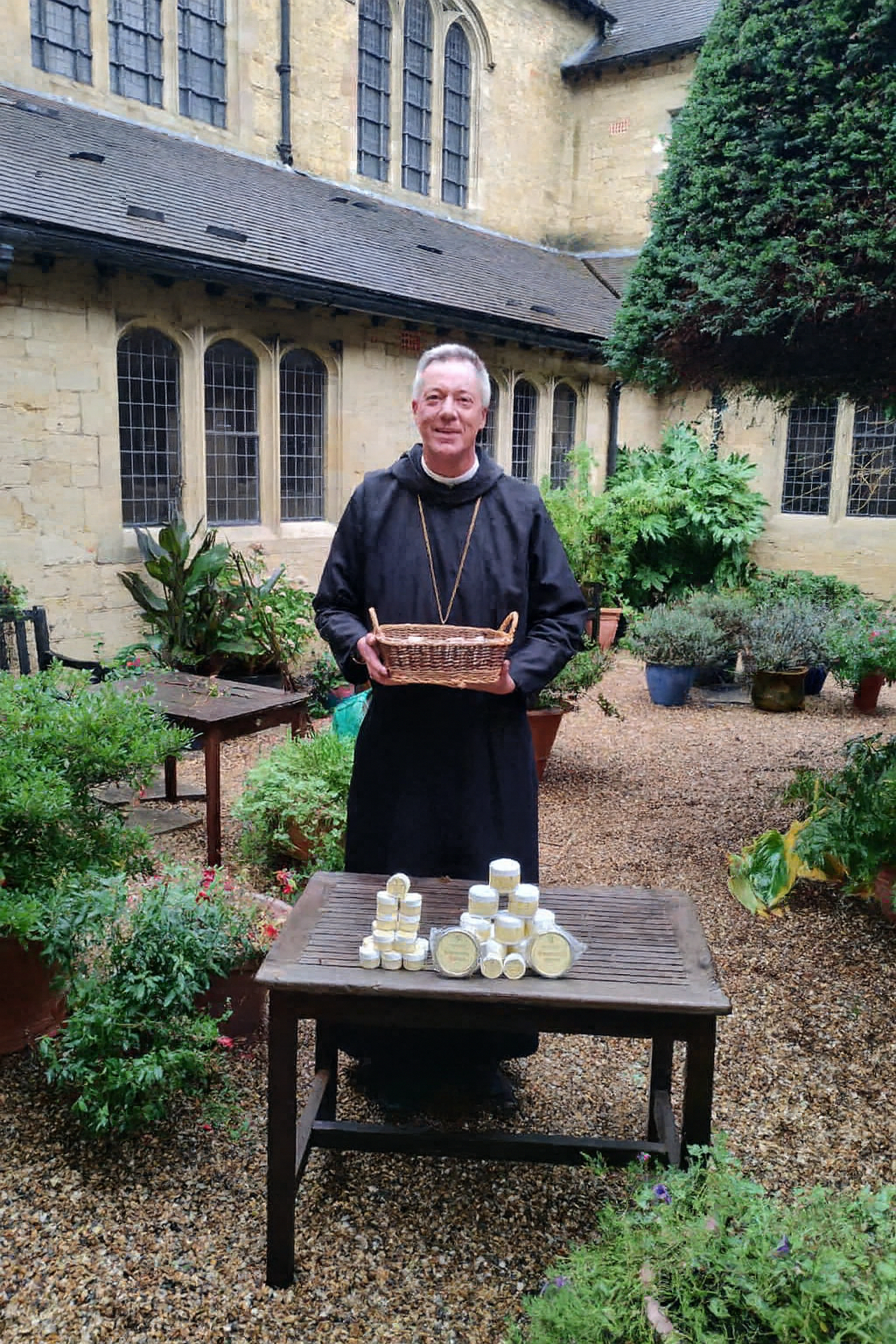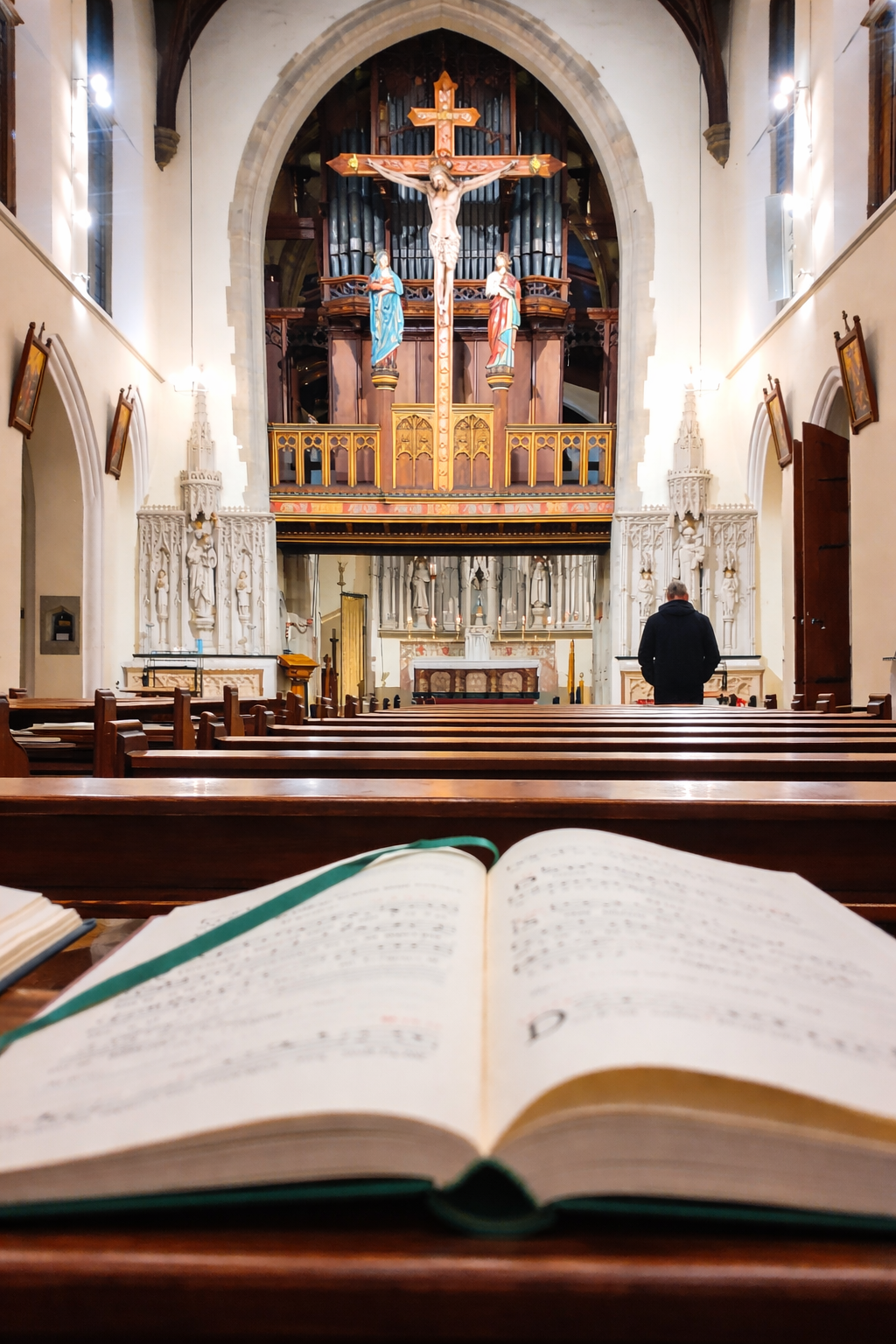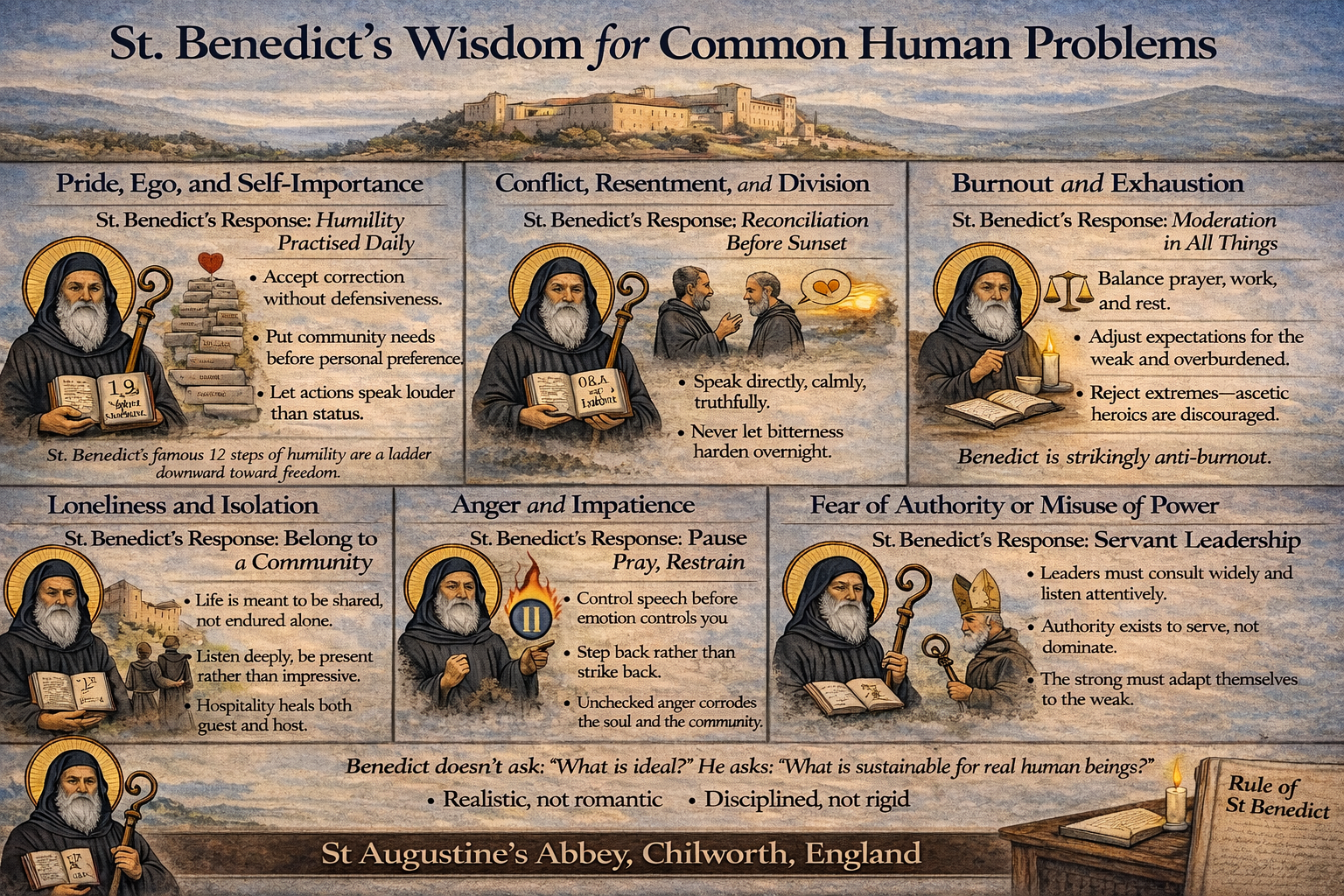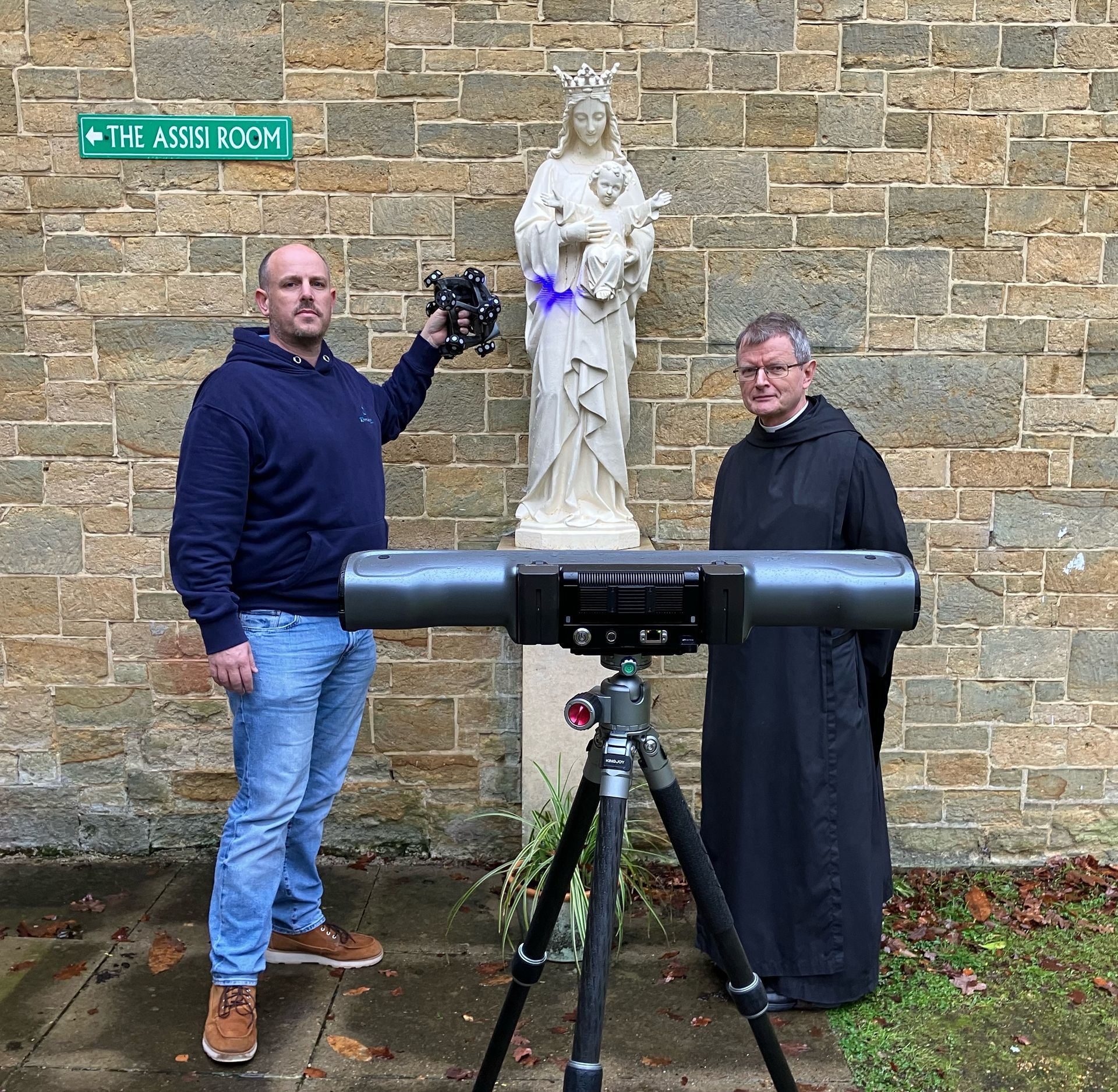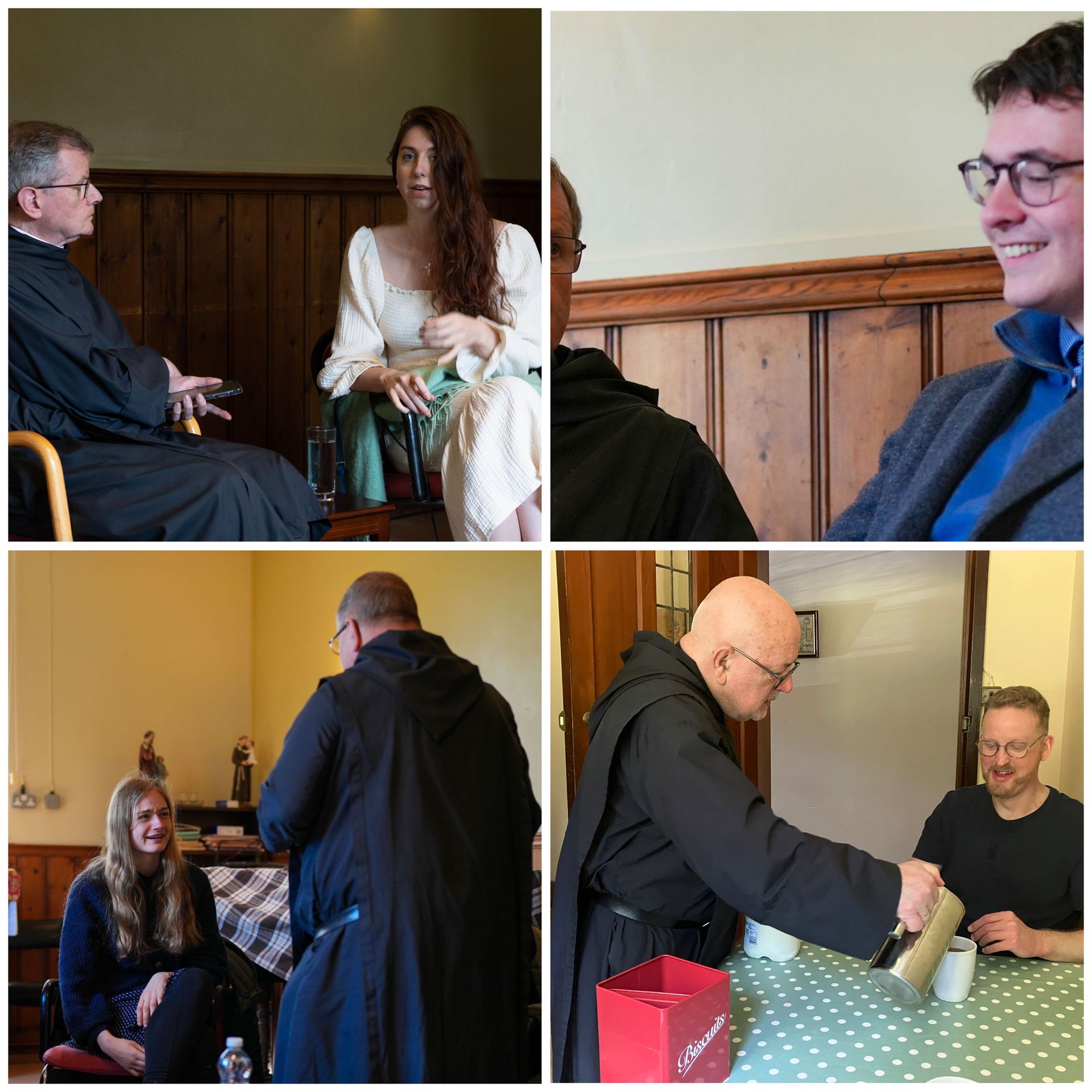The design of a Benedictine monk's habit explained
25 June 2024
Each part of the habit has a special meaning
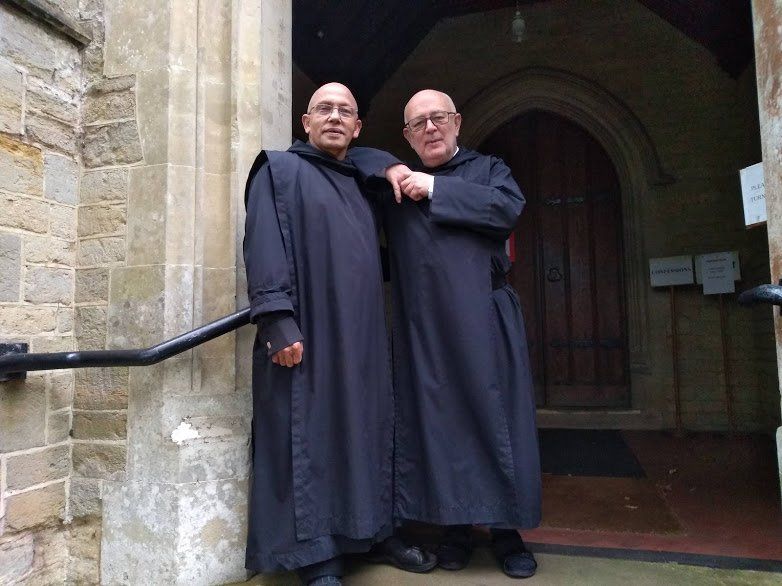
Message from the active Roman Catholic Benedictine monastery of St Augustine's Abbey, Chilworth near Guildford, UK - you are welcome to visit and stay in our monastic guest house:
click here
The tunic is in black which is the same cast as the soil, (humus in Latin). Wearing this, is a good way of reminding myself of my humanity which is created from the earth, which should reject pride and live, therefore, in humility. Pride made Adam fell away from God's friendship in Genesis 6. Consequently, humility is St Benedict's foundation stone to Gospel living. See the Rule of St Benedict, Chapter 7.
The belt circles the waist and is a sign of the conversion of life the monk vows to follow. The belt stops the tunic from flowing about the body in an unruly way. In the same way, conversion of life is allowing the daily life of the monastery and its interactions with God and the brethren to encircle the monk and slowly, over a life-time, change him into a saint.
The hooded scapular rests on the monk's shoulders (scapulae in Latin) and over the tunic and belt. Jesus said 'shoulder my yoke and learn from me for I am gentle and humble in heart.......my yoke is easy and my burden light.' Matt 11:28-30 It is not difficult to see this light piece of material as deeply symbolic of Christ's command. The monk makes a vow of obedience to his Abbot, to imitate Christ who came to us, not to do His own, but His Father's will and so redeem us from our sins. By his obedience, the monk shares in this redemption in a real way, as part of the Body of Christ.
The hood is used most effectively in prayer as a way of focusing on Christ and repelling distractions. Symbolically, it makes you look straight ahead on the path to the kingdom of God, not looking to the left or the right for paths that lead him away from the goal.
So the monastic habit eloquently reminds the monk every moment of the way he should be living to fulfill his vows. Ps 61:8
In choir, when we are worshipping God, over the habit we wear the cowl. This is a cone shaped garment, reaching to the feet, with long wide sleeves and a large pleat in the back. More traditional cowls have 73 pleats for every chapter of St Benedict's Rule. It is largely used to keep the monk warm in a cold church, but is also a powerful reminder of his total dedication to the worship of God and and of God enfolding the monk in love. The monk receives the cowl at his solemn profession, when the cloak he has worn during his novitiate and years of simple profession is laid aside, and the Abbot clothes him symbolically in Christ. This graphically and visually makes present the monk's Baptism, now to be lived very publicly as a consecrated religious, witnessing to the coming Kingdom of God.
By Fr John Seddon OSB, Benedictine monk
St Augustine's Abbey, Chilworth, United Kingdom





